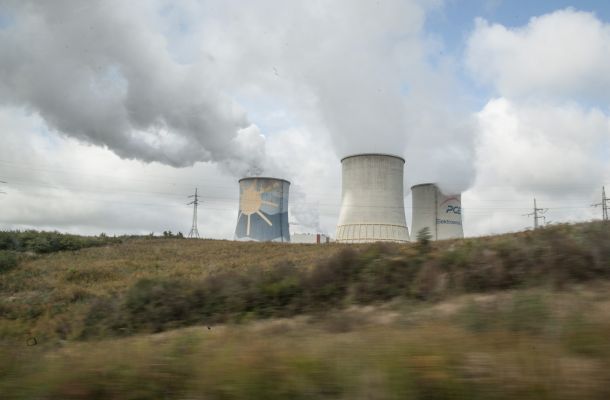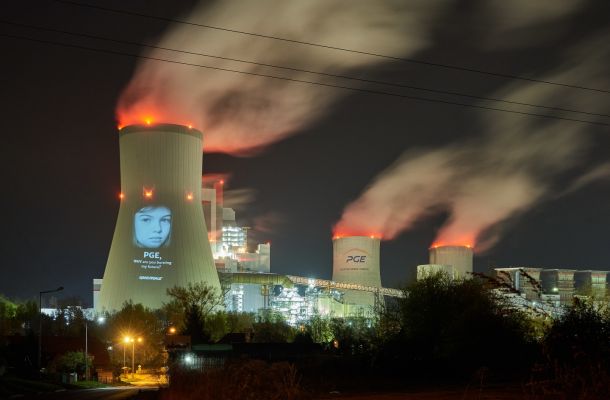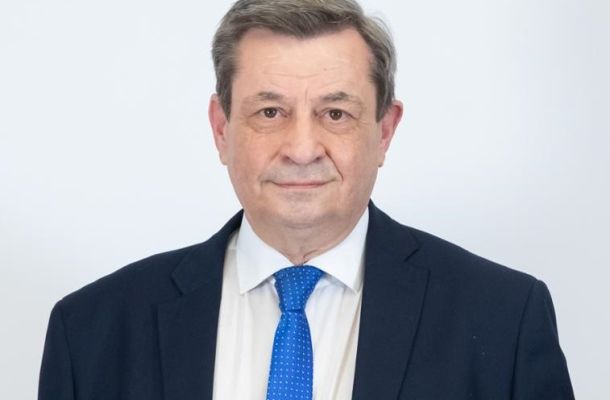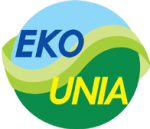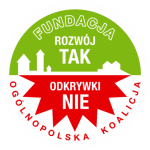Opencasts under scrutiny of Rzeczpospolita
Barbara Oksińska from the most read Polish daily - Rzeczpospolita- is writing about the lack of consent of NGOs and local communities to the construction of new lignite opencasts.
Lignite is the cheapest, but also the dirtiest fuel used to produce electricity. According to the assumptions of the Paris Agreement, we should gradually phase out the coal-fired power generation, increasing investments in renewable energy sources. However, Polish coal companies, in defiance of the EU recommendations, persistently strive to hold on to lignite and open new opencasts.
Such activities arouse understandable opposition of activists and environmental and other NGOs, as well as local communities, for whom life in the shadow of opencasts means serious trouble.
Pure hypocrisy of Zygmunt Solorz
In her article, Barbara Oksiński refers to an open letter sent to Zygmunt Solorz-Żak, signed by sixteen NGOs (including Foundation “Development YES - Open Pit Mines NO” and “Eko-Unia” Association). Solorz-Żak is the majority shareholder of a coal company Zespół Elektrowni Pątnów-Adamów-Konin S.A. The letter is the answer to a program initiated by the businessman, called “Program Czysta Polska” [“Clean Poland Program”]. The announcement of the program in the summer of 2019 coincided with the protest of the Konin region residents, victims of the activity of the lignite open pit mines owned by the publicly traded ZE PAK SA company.
A spot promoting the Clean Poland program is, according to the signatories, a media show created in order to improve the image of Zygmunt Solorz-Żak and shift the public attention away from the activities of the coal utility, which continues to devastate the environment in the name of a profit accumulated in the hands of its majority shareholder. This means pushing the responsibility for the state of the environment away from the real culprits to common citizens.
– In his letter, Józef Drzazgowski from Stowarzyszenie Ekologiczne Eko-Przyjezierze [“Eko-Przyjezierze Environmental Association”] comments:
– Rapid fall in water level in the lakes of Konin region, including Gopło, Kownackie, Wójcińskie, Wilczyńskie, Ostrowskie, Budzisławskie is, without a doubt, the effect of the activity of the nearby open pit mine owned by the company ZE PAK S.A. – Degradation of the lakes is advancing, carrying a fall in tourism and succeeding redundancies. Drainage of the terrain by the opencast also brings enormous losses for the local farmers.
A “No” for the Turów opencast!
Oksińska points out as well to the problems of the Liberec region’s residents in Czechia, who are neighbours of the “Turów” open pit mine owned by PGE. Recently, the minister of climate Michał Kurtyka has issued a decision about the extension of the lignite mining license for six additional years. What is more, PGE is still endeavouring to obtain a new license for the next 24 years for the same mine.
The mine expansion and the license extension are categorically opposed by endangered residents of Czechia (supported by the state authorities, local government officials and civil society groups), who are already experiencing negative effects of its activities. The license issued by the Polish authorities may leave nearly 30,000 people without access to drinking water.
The Czechs count on EU institutions’ help. Even before the license was issued, they submitted a complaint against Poland to the European Commission and a petition to the European Parliament Committee on Petition, in which they address the issue of a violation of the European law on consultations and the Water Framework Directive as well as rights of citizens the localities that may face water shortage, dust and noise. The petition was signed by 13 thousand people (including Germans and Poles). The protest was joined by MEPs from Czech Republic and Germany, that had already been consulting the issue with the European Union Commissioner for the Environment.
Equally controversial is the Złoczew opencast planned by PGE, which would be destined to provide Bełchatów with coal. The problem is that further investment in lignite means not only a catastrophe to the climate and drama to people who live near the opencasts. The idea is absurd from the economic point of view. Oksińska cites an opinion by Aleksander Śniegocki from WiseEuropa:
– I think that after the current pandemic crisis, the discussion on the topic will finally end. Electricity companies will be weak and surely won’t decide to spend billions of zloty on investments that don’t have any economic nor strategic grounds.
The whole article available here:
https://energia.rp.pl/surowce-i-paliwa/wegiel/21408-odkrywkowe-kopalnie-w-ogniu-protestow
Popularne Artykuły
PGE myths vs reality
Why are you burning our future?
Polish prime minister dismisses for the truth about Turów
About Us
Our organizations jointly counteract the expansion of the open-cast Turów lignite mine in Poland for the benefit of local communities, nature and climate. We support civic activities undertaken by the international community at the interface of the Czech Republic, Germany and Poland. We strive to make the lignite-dependent Bogatynia enter the path of energy transition as well as economic and social transformation.
